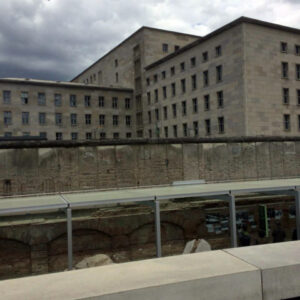Duke Daytime MBA Student Blog

Leaders of Consequence: Finding the Higher Purpose

A few career paths ago, I was a budding classicist, studying ancient Latin and Greek. It was during those years, I grew to value how much the past can inform our present and future. Or, as the Greek author Thucydides wrote in one of his most famous works, “history is philosophy teaching by examples.”
It’s been a long time since my classics studies, but my Fuqua experience has been an opportunity for me to consider thoughtfully my own present and future, and the future of business I’d like to be a part of. At Fuqua, we say we are looking for ‘Leaders of Consequence.’ Our curriculum will prepare you to be an effective leader in the business world, and we ask you to find the ‘consequence’—or higher purpose—for that leadership. Thucydides might have termed this getting in touch with our ‘philosophy’.
Studying Leadership in the Classroom
Last spring, I took Professor Kimberly Wade-Benzoni’s Power and Politics course here at Fuqua. Talking about power is maybe the most direct way to help business students differentiate leadership of consequence from mere leadership. As many of our class discussions revealed, learning to acquire power within organizations without anchoring that discussion to topics like personal ethics and understanding of one’s legacy as a leader becomes a dangerous endeavor.
Some of history’s most notorious villains have been highly effective leaders, but we certainly wouldn’t call them leaders of consequence. One of the questions the course asked was how, then, could we learn from the examples of famous leaders to acquire power in a more consequential way?
Examining Leadership Globally

With that exact question on my mind, I spent the first two and a half weeks of this past summer at the Fellowship at Auschwitz for Professional Ethics (FASPE), a program run through the Museum of Jewish Heritage in New York City. I was fortunate to be one of 8 MBA students across the U.S. selected for the Fellowship, along with 4 European MBAs.
FASPE has a simple premise: that the lessons of the past have a crucial role to play in helping the next generation of business leaders understand not just how to avoid the mistakes of history, but also how to direct business to a higher purpose—in Fuqua’s language, to consequence.
The program brings together Leaders of Consequence, i.e. MBA students from across the U.S., Germany, Austria and Poland—a combination meant to reflect the global nature of the modern business community. As a group, we traveled to Berlin, Krakow and Oswiecim, Poland, to grapple with the role that business professionals and corporations played in the events leading to the Holocaust. We then attempted to understand and prepare for contemporary ethical challenges which our future roles as managers may position us to impact.
Takeaways from the Experience

The first thing I learned in Europe and again in writing this blog was that confronting the role of business in the Holocaust is a profound undertaking. I have opted not to write in detail about that part of my experience or share the most explicit photos from it, for one simple reason—I can’t possibly do it justice. I can only say that it was humbling and horrifying, and that anyone who doubts the power of business to do great harm or great good in the world should have the privilege of being led through such a confrontation of history.
I do want to talk about the importance of my second activity on FASPE—understanding how future managers can respond to major contemporary ethical dilemmas. Other student fellows and I worked through an ethical framework which assumes that ethical challenges will arise in the practice of business. It then teaches us to practice how we would express our values in word or action when confronted with these challenges.

Through this proactive framework, I was able to answer the question of how to begin making sense of the history I confronted on this trip. It was, as Thucydides would say, a philosophy through which to understand the terrible examples we studied at FASPE. But philosophy isn’t exactly the same as consequence, it’s just a potential roadmap for it.
My effort to find consequence in my leadership is ongoing, through my work at Fuqua and my career aspirations beyond Fuqua. FASPE was a terrific example of how quickly we are confronted outside the classroom by material we learn within Fuqua. I hope that in retrospect, both my time at FASPE and at Fuqua will serve as guideposts in ensuring that I advocate for the presence of consequence in both my career and my life.



